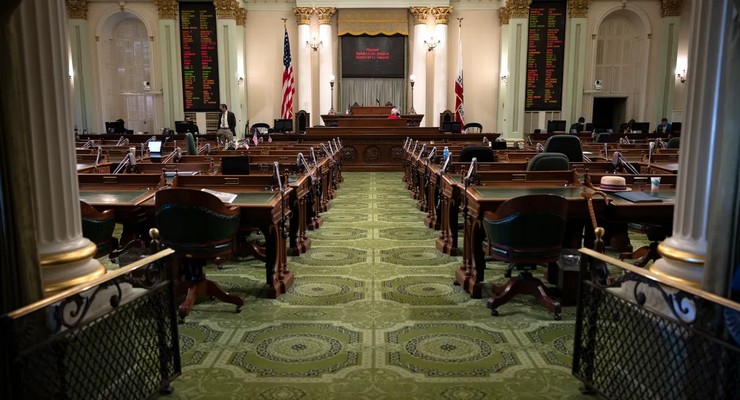
Against the backdrop of the election, the Legislature’s year was marked by debates over retail theft policies, an 11th-hour special session called by the governor, and a dramatic shelving of two reparations bills.
On the final night of the session, Aug. 31, Gov. Gavin Newsom called a special session so the Legislature could pass bills intended to lower gas prices for Californians by requiring oil companies to increase their reserves. It was, at that point, the second special session in as many years, and prompted rare resistance from Senate Pro Tem President Mike McGuire, not because of policy differences, but because McGuire didn’t think it was necessary.
That wasn’t the only showdown between the Legislature and the governor this year. After some lawmakers initially resisted Newsom’s push to place a crime measure on the ballot, the branches came together to pass a slate of retail theft bills.
The Legislature also passed 12 bills borne out of the state’s reparations task force, including a formal apology for California’s role in the perpetuation of slavery. But in the final week, the Assembly failed to take up two bills, to the frustration of supporters, aimed at eventually disbursing direct cash payments to descendants of people enslaved in the United States.
While lawmakers were, in theory, constrained by the second year of a budget deficit, they still managed to pass some key legislation, including a contentious bill preventing school boards from adopting policies to inform parents if students use a name or pronoun that does not align with their biological sex. The Legislature also passed bills regulating artificial intelligence, allowing tribes to sue private gambling halls and banning legacy admission at universities.
The 2024 year was the first full year presided over by new Assembly Speaker Robert Rivas, a Democrat from Salinas, and McGuire, a Democrat from Santa Rosa..
The Legislature and governor largely saw eye-to-eye on bills: Lawmakers sent 1,206 bills to Newsom, of which he vetoed 189 — on par with the state averages over the last decade.
2025 outlook
Legislative leaders in December limited the number of bills members could introduce from 50 in the Assembly to 35, and from 40 to 35 in the Senate. The new class of legislators represents the most women ever elected; for the first time, half the state senate will be women, finally reflecting the state’s population. The Republican Caucus also grew more diverse.
After Donald Trump won the presidential election, Gov. Gavin Newsom called the third special session of the last two years to pass bills that allocate funding for the state’s Department of Justice to sue the Trump administration as needed. A fresh Trump administration will be round two of a showdown between California lawmakers and the federal government over its potential policies on environment, immigration and reproductive rights.
CalMatters.org is a nonprofit, nonpartisan media venture explaining California policies and politics.














 0 comments
0 comments



